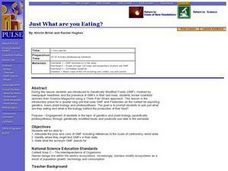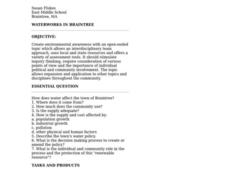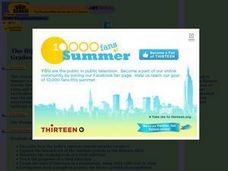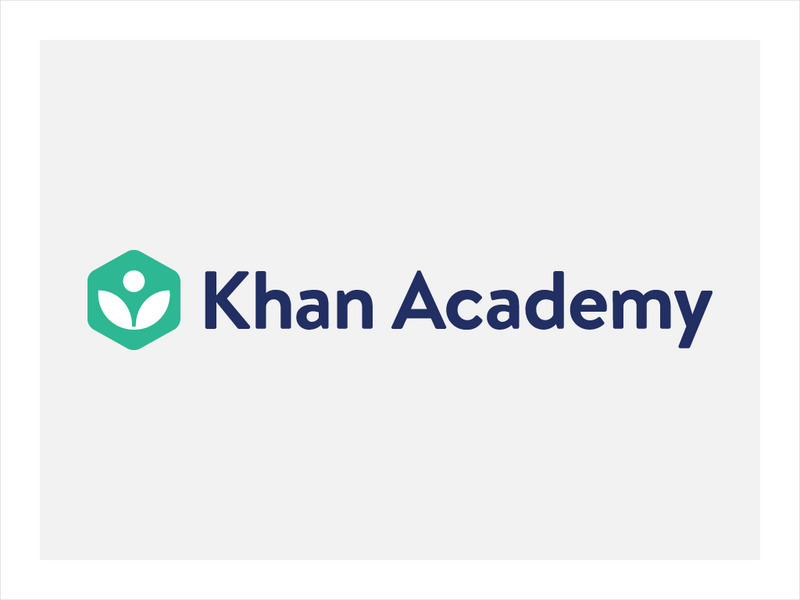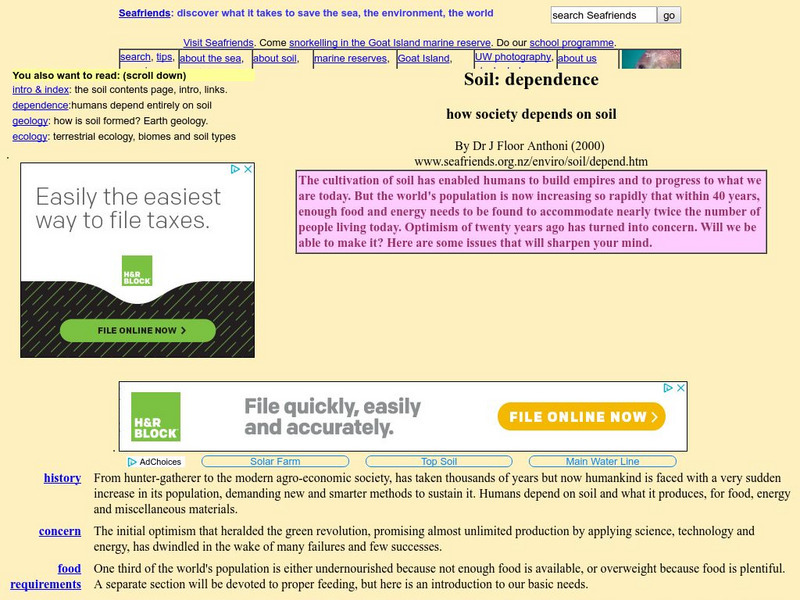Curated OER
Just What are you Eating?
Students identify and articulate pros and cons of genetically modified foods (GMF) including references to scale of controversy worldwide. Students then identify where they might find GMFs in their diets, read different opinion pieces on...
Curated OER
Geography of the Study of the Spanish-speaking People of Texas
Learners identify the physical features, demographic characteristics, and history of the four Texas towns featured in Russell Lee's photo essay, "The Spanish-Speaking People of Texas." They conduct Internet research, and create a travel...
Curated OER
Site and Situation: Right Place at the Right Time
Middle schoolers put their geography skills to work. In this geography skills lesson, students research maps and other primary and secondary sources to simulate the site selection process for the Pennsylvania Railroad Shops post World...
Curated OER
Patterns of Settlement in Early Alabama
Fourth graders study the settlement of Alabama. They collect data from the U.S. census website and answer questions regarding settlement patterns in the counties of Alabama in 1820. They write a paagraph describing where they would have...
Curated OER
Immigration Push and Pull Factors
Eighth graders examine significant ideas, beliefs, and themes; organize patterns and events; and analyze how individuals and societies have changed over time in Maryland, the United States, and the world.
Curated OER
The Hijacker - How a Virus Spreads
Students view a video that presents how viruses attack the body and how the body's immune system responds. They simulate the spread of an infectious disease and establish the identity of the original carrier.
Curated OER
Australia's Religious Diversity
Students identify major world religions and forms of spirituality and recognise the religious diversity of communities in Australia. They brainstorm for the definition of religion. Students brainstorm to come up with a list of religions.
Curated OER
The Arctic and Taiga Ecozone of Canada
Young scholars examine the various sub-regions of the Arctic and Taiga zones in Canada. Using the online Canadian Atlas, they locate and describe the characteristics of each zone. They organize their information into a chart and share...
Khan Academy
Khan Academy: Activity: Population Growth
In this activity, you will study and analyze the nature and patterns of human population growth over the last 10,000 years. This will help you understand the differences between population growth before and after the Modern Revolution.
Population Connection
Population Connection
Population Connection, a grassroots organization concerned about overpopulation and its affect on the quality of life, provides a wealth of materials about human population. Resources include world population fact sheets, factoids,...
US Census Bureau
Us Census Bureau: International Data Base
Statistical data on the population and demographics of 228 countries, including change, sex ratios, life expectancy, and percent with HIV/AIDS. There are also detailed explanations of the means of producing these statistics. It is...
Other
Seafriends: Soil Dependence
This website looks at our dependence on soil and what it produces. It includes text, graphs, charts, illustrations and important statistics. Hosted by the Seafriends Marine Conservation and Education Center.


